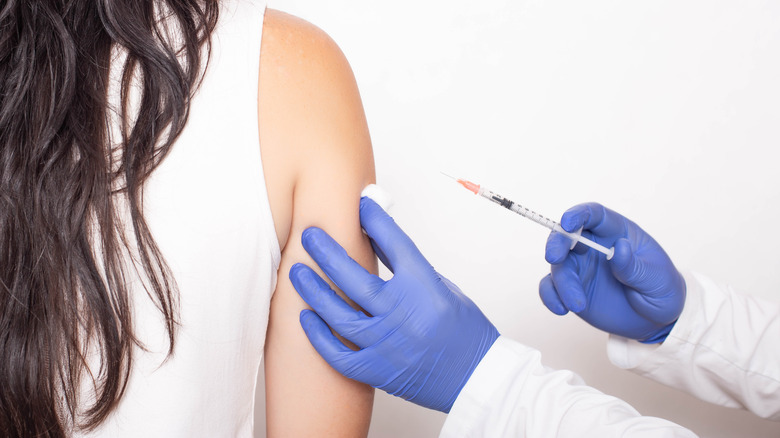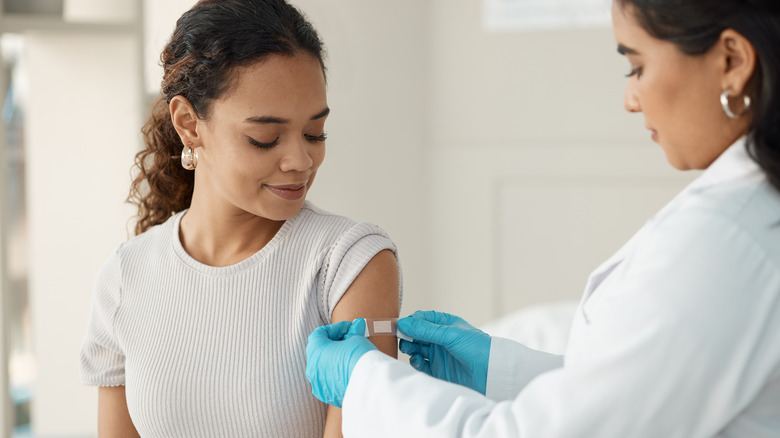How Long Does It Take To Get Allergy Shots?
At best, allergies cause occasional sniffles. But at worst, they can impact your daily life and even cause possible fatal reactions (per Cleveland Clinic). Rashes, watery eyes, itchiness, a runny nose, and trouble breathing are all possible allergy symptoms. Some allergy sufferers may even notice mental effects, such as brain fog and depression, according to Aspire Allergy & Sinus.
There is no cure for allergies, though discomfort can be managed and prevented (via Cleveland Clinic). Common treatments include taking allergy medicine every day and avoiding coming in contact with triggers (per Medical News Today). However, severe allergies may require more aggressive immunotherapy, where a doctor administers allergy shots containing allergens to desensitize the body.
Allergy shots are ideal for those who have symptoms for at least three months each year and don't find relief from medications, says WebMD. The injections work best for allergies to bee stings, dust mites, pollen, mold, and pet dander. When they work as intended, allergy shots improve the severity and frequency of symptoms.
However, one drawback of allergy shots is the time commitment required. Here's what to expect when heading to your first allergy shot appointment.
Set aside time in your schedule for allergy shots
Allergy shots aren't a quick fix. According to Mayo Clinic, you must first make an appointment for an allergy test before receiving your first allergy shots. Then, expect to visit your doctor one to three times each week for the first few months of immunotherapy. After this period, called the buildup phase, is completed, you will start the maintenance phase, lasting three to five years. During this timeframe, allergy shots are administered around once a month.
Each appointment lasts at least around 45 minutes. This is because your doctor will ask you to remain under their supervision for 30 minutes after receiving each shot to watch for any adverse reactions. In the event you do experience a serious reaction, you may need to stay at the doctor's office or move to an emergency room for treatment.
Severe reactions are rare, and in most cases, appointments will finish 30 minutes after you've received the shot. However, you should continue to rest and avoid exercise or strenuous activities for two hours after each appointment since this may lead allergens to disperse through your body more quickly (per WebMD).


